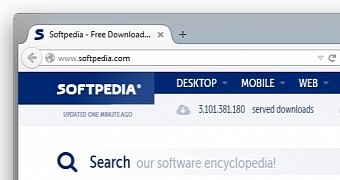Dave Camp, Mozilla’s Director of Engineering, has launched an idea on Mozilla's mailing list in which he proposes to build the Firefox UI out of modern Web technologies, instead of XUL, what they're using right now.
XUL, or XML User Interface Language, is a user interface markup language developed at first at the Mozilla Foundation to help its developers build the Firefox browser's UI.
It is a combination between XML and HTML, and was also the inspiration for XAML, a similar XML-based user interface language used with Microsoft's Windows Presentation Foundation (WPF).
XUL's downfall was caused by performance issues and developer-unfriendliness
While the language has been praised at first, most developers have avoided using it, Mozilla being still the only place where it's used on a regular basis.
This is the main issue Dave Camp has with XUL, considering a barrier for most developers when trying to develop extensions for Firefox.
Since the early days of Firefox, Web technologies have grown much faster than expected, and what in the beginning seemed to be a good solution that plugged many holes is now a damper on the browser's performance.
"Because XUL and XBL aren’t web technologies, they don’t get the same platform attention that HTML does (for good reason!)" said Mr. Camp. "We intend to move Firefox away from XUL and XBL, but the discussion of how to do that is in the early stages."
HTML is the favorite to replace it
No details have been discussed yet about what will replace XUL, but the early bets are on the good ol' combination between HTML, CSS, and JavaScript.
We say this because a few months back, we accidentally stumbled over this GitHub repo, where the Mozilla team was "experimenting" with building a browser interface in HTML.
The advantages of using HTML & CSS over XUL & XBL are tremendous, the dev team exposing its add-on building process to anyone that has ever learned to code a website.
This also means more developers could contribute to the Firefox core itself since they won't be forced to learn a Mozilla-specific language anymore (like XUL is).
Additionally, by not supporting XUL and XBL anymore, the browser's Gecko engine should also lose much of its weight, along with the performance issues they caused, freeing developers to deal with other more important tasks.

 14 DAY TRIAL //
14 DAY TRIAL //